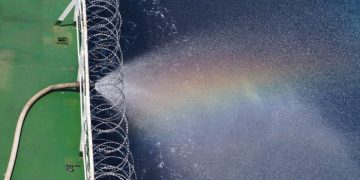Sulphur content in ships bunker fuel in 2015
The Ministry of Transport and Communications of Finland has issued a study entitled "Sulphur content in ships bunker fuel in 2015" regarding the impacts of the new IMO regulations on transportation costs. On 10 October 2008 the Marine Environment Protection Committee (MEPC) of the International Maritime Organisation (IMO) unanimously adopted the revised Annex VI to MARPOL 73/78 (International Convention for the Prevention of Pollution from Ships), which places restrictions on nitrogen and sulphur oxides emissions from ship traffic. Lowering the sulphur content in fuels will also be a way to reduce emissions of particulate matter from shipping. The new Annex enters into force on 1 July 2010. The sulphur content of fuel will fall in the special areas (SECA = Sulphur Emission Control Area), which are the Baltic Sea, the North Sea and the English Channel, from 1.5% to 1% from 1 July 2010, and to 0.1% from 1 January 2015. Globally, the highest permitted sulphur content of fuel will fall, as from 1 January 2012, from 4.5% to 3.5%, and to 0.5% from 1 January 2020. The use of sulphur scrubbers will still be allowed, so that the fuel grades currently in use on vessels fitted with them can ...
Read more
























































